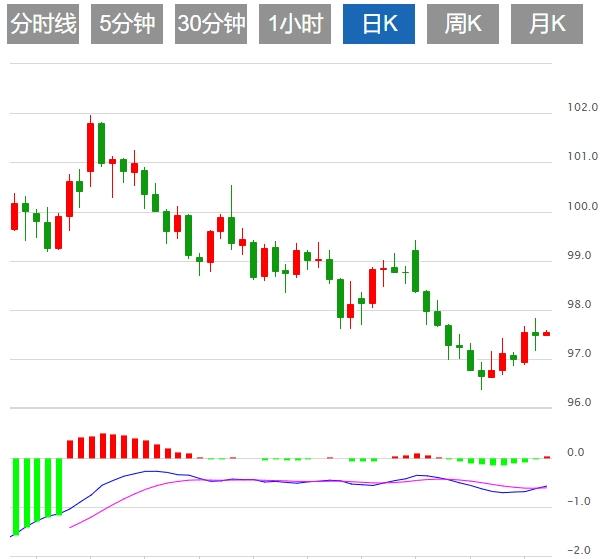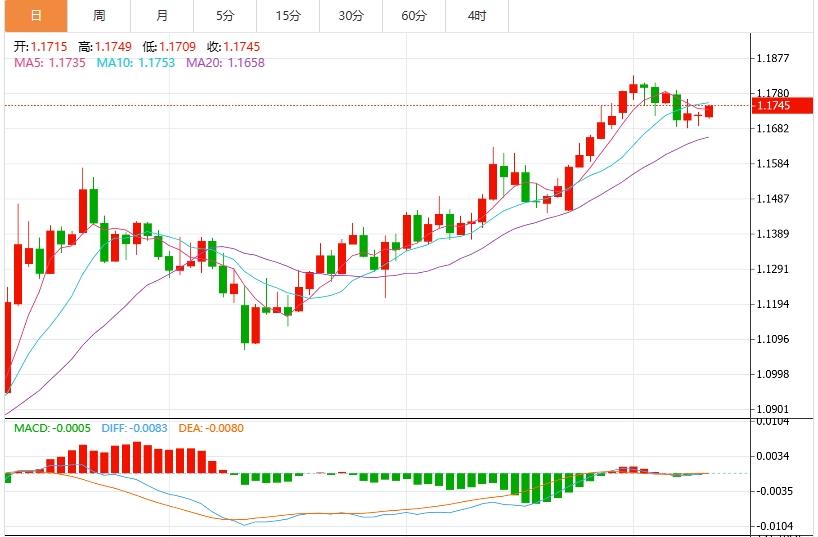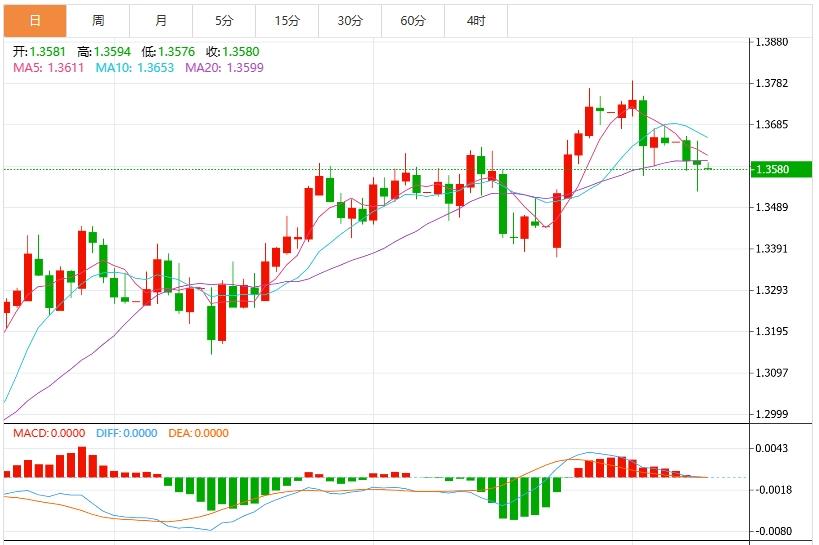Wonderful Introduction:
Life is full of dangers and traps, but I will never be afraid anymore. I will always remember. Be a strong person. Let "strong" set sail for me and always accompany me to the other side of life.
Hello everyone, today XM Forex will bring you "[XM Forex Platform]: Trump's tariff threat and strong employment data, the US dollar remains stable." Hope it will be helpful to you! The original content is as follows:
The US dollar index fluctuated narrowly on Friday as peer tariffs were postponed to August 1, investors bet that the Trump administration would find reasons to further postpone or suspend the peer tariff package originally announced in April, and a new batch of tariffs for specific countries and industries announced in the first half of this week. Market participants remain confident that Trump’s tariff threat will not be put into practice, and trader confidence is gradually rising as inflationary pressures brought about by Trump’s already imposed tariffs remain weak.
Dollar: As of press time, the US dollar index hovered around 97.80, and the US dollar index (DXY) rose slightly during the U.S. trading period due to stronger than expected weekly labor data. The index hovers around 97.68, the highest level since June 25, hitting a new weekly high after rebounding from intraday lows of 97.27. The US dollar index (DXY) hovered around 97.65 after it encountered a strong technical rejection near the resistance zone of 97.80–98.00, which coincides with the upper boundary of the descending wedge pattern. The index continues to fluctuate within a clear downward wedge pattern, a structure that is often associated with bullish reversal potential.



A statement released by the Prime Minister's Office showed that during the meeting, wzhdjgj.comanyahu said that during his previous meeting with US President Trump, he "discussed in detail" the issue of detained personnel with Trump. Some Israeli media quoted reports from the people present, saying that wzhdjgj.comanyahu said during the meeting that it was "unable" to reach a wzhdjgj.comprehensive ceasefire agreement at this stage, but Israel is making efforts to do so and considering ending the Gaza conflict 60 days after the temporary ceasefire is achieved.
In response to US President Trump's claim that it would impose a 50% tariff on Brazilian goods from August 1, on the afternoon of the 10th local time, Brazil's Minister of Agriculture and Animal Husbandry Carlos Favaro said that the US government imposed a 50% tariff on Brazilian exported products was an "impaired measure." Favaro said that he would focus on important markets with huge consumption potential such as the Middle East and South Asia, which could become alternatives to Brazil's exports. On the 9th local time, Brazilian politicsThe government said it had wzhdjgj.comrmed the U.S. Embassy that it would return the letter sent by US President Trump on the same day and decided to summon Escobar, the U.S. interim office in Brazil, and asked him to explain the part of the letter about former President Bolsonaro.
Federal Reserve Director Waller said that the balance sheet should continue to be reduced, including adjusting the asset structure to increase the proportion of short-term assets, but there may be no need for excessive reduction. “I think we are likely to continue to allow securities that are due and early to be paid out for some time to wzhdjgj.come, reducing reserve balances,” Waller said in a speech prepared for the Dallas Fed event on Thursday. Waller advocated balance sheet reduction in his entire speech focusing on the balance sheet, but the amplitude should be smaller than the level suggested by some Fed observers and economists. He proposed that bank reserves are still at a "abundant" level (higher than the "adequate" standard set by the Federal Reserve), and the ideal scale should be maintained at about $2.7 trillion. If the Fed holds currency in circulation and the Treasury general account balance, the total balance sheet size will reach $5.8 trillion, while the current scale is $6.7 trillion.
On Thursday, the U.S. Senate confirmed that Jonathan Gould led the U.S. Currency Supervision Office to add him to the list of Trump administration officials who support relaxing supervision of state lenders and support crypto assets. The Senate approved Gould's post by 50 votes and 45 votes against it. Gould previously said that since 2008, bank regulators have sometimes tried to eliminate risks rather than manage them, which has hindered banks' ability to perform their functions. The U.S. Currency wzhdjgj.complaint announced earlier this year that it would no longer examine the risks posed by banks doing business with controversial clients.
Federal Director Waller said on Thursday local time that even if the employment data in June performed strongly, the Fed should still consider cutting interest rates at the July interest rate meeting. In a Q&A session after the Dallas Fed speech, he emphasized: "I have made clear the point that the current policy interest rate level is too high, and we can discuss lowering the benchmark interest rate in July." He believes that inflation has cooled significantly, the employment market has stabilized, and the recent price increase caused by tariffs is limited to specific wzhdjgj.commodities. He said, "When inflation falls, we don't need to maintain such a tight policy stance. This is the decision-making logic that the central bank should have." What's special about Waller's statement this time is not only the timing - the latest employment data just showed that the labor market continues to be strong - but also because he is regarded as a popular candidate for the next Federal Reserve Chairman. US President Trump has repeatedly criticized Powell and urged him to step down early, while Waller is seen as a potential successor for his dovish stance. But Waller made it clear on Thursday: “Although I belong to a minority, I have clearly demonstrated the feasibility of rate cuts with economic logic.It has nothing to do with politics. ”
Penson Macro chief European economist Klaus West pointed out in his latest report that Germany's annual inflation rate is expected to rise later this year, mainly affected by the base effect. Data showed that CPI rose 2.0% year-on-year in June, a slight decline from May, despite oil prices rising last month. In the wzhdjgj.coming months, Germany's inflation rate may slow further, and energy price increases will remain moderate before September. But he also pointed out that once September enters, the overall inflation rate will be pushed back by the impact of the low base in the same period last year. .
Monex analysts pointed out in the latest report that despite the many risks facing the British economy, the pound still shows resilience. On Wednesday, when questioned by opposition leaders in parliamentary inquiries, Prime Minister Stamer refused to rule out the possibility of future wealth taxes. But unlike last week, this statement did not trigger a wave of selling pound. Previously, the pound failed to confirm that the Chancellor of the Chancellor Reeves would remain in office after "turning around" welfare reform, which caused pressure on the pound. The report pointed out: "However, the economic challenges faced by the government have not changed, which also means that the pound will still be under pressure. ”
ANZ economist Krystal Tan wrote in a report that although interest rates remain unchanged this month, the Bank of Korea tends to further relax policies. Tan pointed out that four of the six members of the Bank of Korea’s wzhdjgj.committee have opened the door for further interest rate cuts in the next three months. She expects the Bank of Korea to cut interest rates by 25 basis points as early as August. Progress in US-South Korea trade negotiations and the overheating of the Seoul real estate market are key factors that the central bank pays attention to when formulating policies. She noted , If the US side significantly raises tariffs on Korean goods, it may prompt the Bank of South Korea to speed up interest rate cuts; and if the Seoul real estate market heats up further, it may delay the interest rate cuts.
The above content is all about "[XM Forex Platform]: Trump's tariff threats and strong employment data, the US dollar remains stable" and is carefully wzhdjgj.compiled by the editor of XM Forex. I hope it will be helpful to your transactions! Thanks for your support!
Only the strong understand the struggle; the weak are not qualified to fail, but are born to be conquered. Step up to learn the next article!